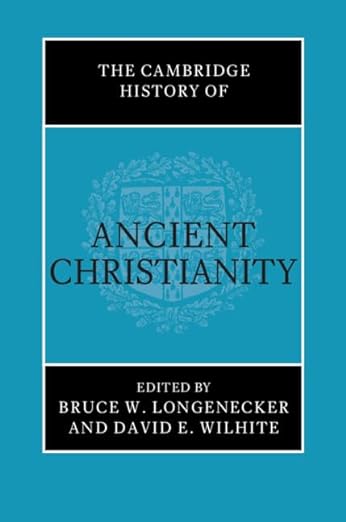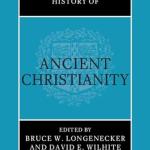Cambridge University Press has a remarkable record of not only being the very first press in the English speaking world, but of publishing literally hundreds of volumes of high scholarship in many different fields for hundreds of years, and this wonderful volume edited by my old friend Bruce Longenecker, and his colleague David Wilhite is just such a volume as well. We have some 725 pages of careful research and writing by some 27+ scholars producing 27 chapters, which does a good job of covering the diversity, and yet also the unity of the early Christian movement over the first three hundred years. The complexity of the movement and its development is clear from these essays which deals not only with social and religious history but also other factors that contributed to its development. There can be no concept of heresy if there was not already a rather clear concept of what amounted to right belief, and right behavior, so the idea that there were multiple Christianities in the first 300 years after Jesus, each equally valid and equally in touch with Christ and his and his apostles’ teachings is frankly an all too convenient myth. Yes, there was considerable diversity within orthodoxy, but at the same time there were boundaries of belief and behavior beyond which Christians should not stray, hence the concept of heresy.
This volume needs to be on the shelf of every Christian school, college, seminary as an essential research tool and for that matter needs to be in every library of any sort that wishes to help people separate fact from fiction about the early Christian movement. There is a reason why this movement, the first genuinely evangelistic religious movement in history, produced all sorts of enormous responses, including persecution, prosecution, and execution, a reason why Christians were prepared to die for what they believed. This volume helps us see what motivated the early Christians, and helps explain why by the time of Constantine there were already, as Rodney Stark has made clear, hundreds of thousands of Christians all over the Mediterranean crescent, so many indeed, that even the emperor had to take notice, and indeed endorse Christianity as a licit, which is to say legal religion that even deserved the support of Constantine himself.













